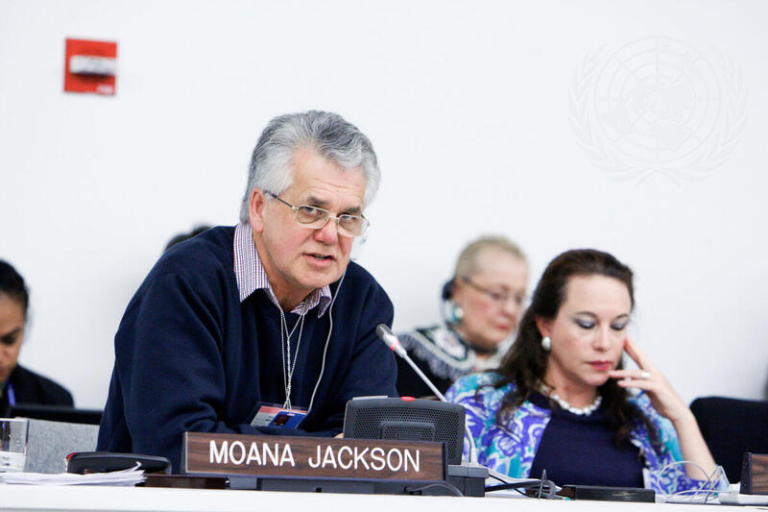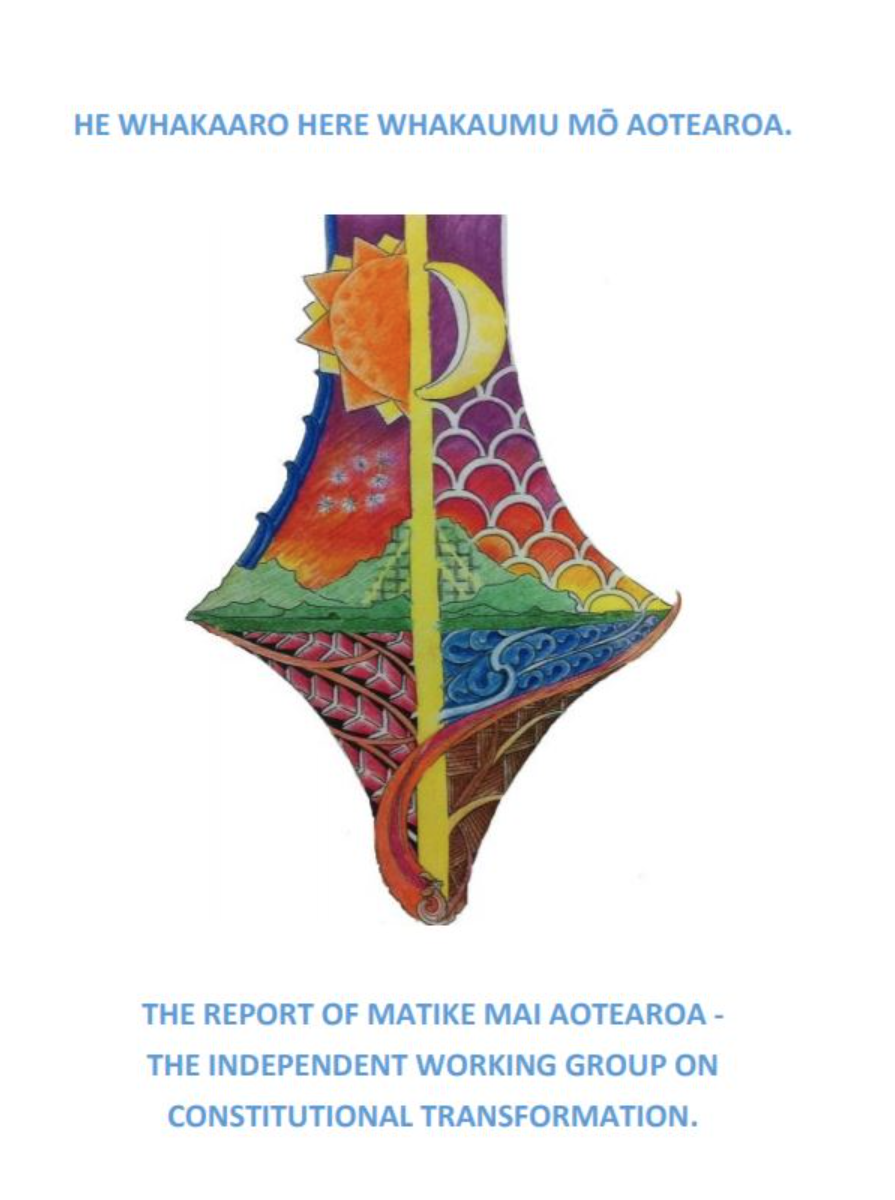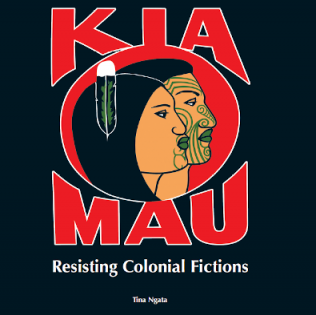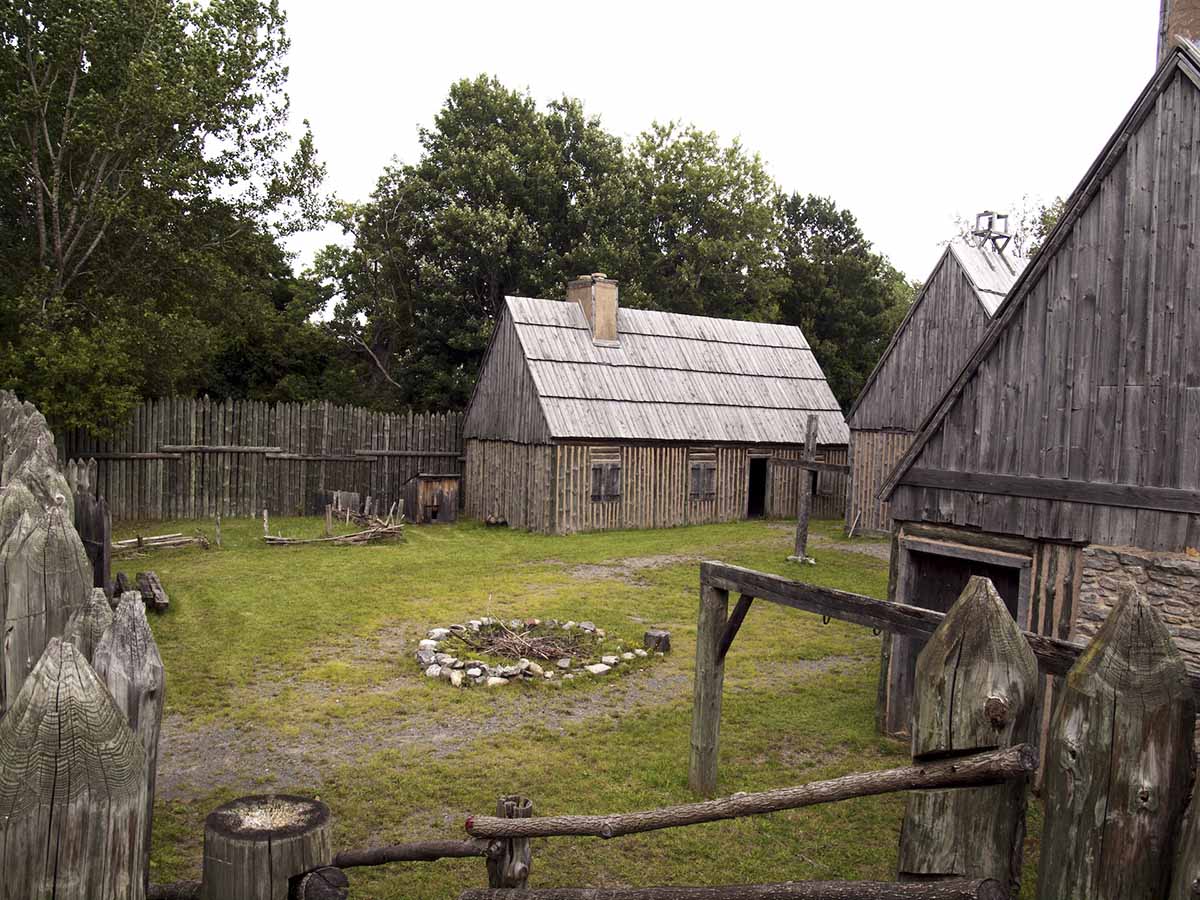The Doctrine of Discovery by Moana Jackson
_As our people march upon government to call for the honouring of our treaty, Te Tiriti o Waitangi, the words of Moana Jackson are more poignant, and powerful, than ever. Here, he reflects on how the ultimate liberation from the clutches of the Doctrine of Discovery can only happen when we have our full political authority returned. He would have been so proud of our people today xx_  * * * Others on this panel who are far more expert than I have already covered much of the history and the basic unjust illogicality of the Doctrine of Discovery. I would like to focus briefly on one part of the doctrine that is perhaps often overlooked, and then devote most of my time to what may be called an Indigenous re-discovery of our own rights, law and sovereign authority. As I am sure many of your will know, the original meaning of the word to “discover” is “to open up to the gaze of others”. What I would like to suggest in most of this presentation is the need for Indigenous peoples not just to require that colonizing states and their agents reject the doctrine and its application, but that as indigenous peoples we re-open the ancient discourses of our ancestors and explore again how we might redefine and reclaim what our rights and authority mean. First of all though, I would like to urge us all to remember that while the Doctrine of Discovery was always promoted in the first instance as an authority to claim the land of Indigenous peoples, there were much broader assumptions implicit in the doctrine. For to open up an indigenous land to the gaze of the colonising “other”, there is also in their view an opening up of everything that was in and of the land being claimed. Others on this panel who are far more expert than I have already covered much of the history and the basic unjust illogicality of the Doctrine of Discovery. I would like to focus briefly on one part of the doctrine that is perhaps often overlooked, and then devote most of my time to what may be called an Indigenous re-discovery of our own rights, law and sovereign authority. As I am sure many of your will know, the original meaning of the word to "discover" is "to open up to the gaze of others". What I would like to suggest in most of this presentation is the need for Indigenous peoples not just to require that colonizing states and their agents reject the doctrine and its application, but that as indigenous peoples we re-open the ancient discourses of our ancestors and explore again how we might redefine and reclaim what our rights and authority mean. First of all though, I would like to urge us all to remember that while the Doctrine of Discovery was always promoted in the first instance as an authority to claim the land of Indigenous peoples, there were much broader assumptions implicit in the doctrine. For to open up an indigenous land to the gaze of the colonising "other", there is also in their view an opening up of everything that was in and of the land being claimed. Thus, if the Doctrine of Discovery suggested a right to take control of another nation's land, it necessarily also implied a right to take over the lives and authority of the people to whom the land belonged. It was in that sense, and remains to this day, a piece of genocidal legal magic that could, with the waving of a flag or the reciting of a proclamation, assert that the land allegedly being discovered henceforth belonged to someone else, and that the people of that land were necessarily subordinate to the colonisers. Rather like the doctrine of terra nullius or indeed the very notion in British colonising law of aboriginal title, the Doctrine of Discovery opened up the bodies and souls of indigenous peoples to a colonising gaze which only saw them as inferior, subordinate, and in fact less human than them. At its most base, it expresses the fundamental and violent racism which has led to the oppression of millions of Indigenous peoples over the last several hundred years. It was thus more than a mere doctrine with unfortunate consequences: it was in fact, and remains to this day, a crime against humanity. And like any crime, it has had, and continues to have, many different manifestations as states continue to exercise the power to dominate which they believe the doctrine has given to them. Sometimes it is manifest in the large and overtly violent actions of an individual state against an indigenous peoples. At other times it can be the dismissive and often petty bureaucratisation of their power. In my view, it will therefore not be sufficient for states or churches or others who have profited from the doctrine to merely reject it in the 21st century as an unfortunate product of another time. Neither will it be sufficient for states or churches to simply apologise for its invention and use (important though that is), but rather to actively seek to undo its consequences in practical and meaningful ways. In effect, any colonising rejection of the doctrine, any apology, will be meaningless unless wit, wisdom, and compassion is applied to a practical and proper recognition of the rights of indigenous peoples as defined by the indigenous peoples themselves. The aim should be not just to recompense for the past actions but to accept that a better and more just future for Indigenous peoples will ultimately require a restoration of the political and constitutional authority which the colonising states have so consistently sought to suppress. Most indigenous peoples have of course long waged a struggle to deal with the costs of the purported right of discovery, and more recently have tried to protect our communities and nations from the genocide which it justified and the ongoing dispossession which it has enabled. Many other indigenous peoples, particularly in recent times, have pointed out the lack of logic in its thesis and the injustice inherent in its application. Still others have sought remedy in international forums or in domestic courts. However, what I would like to respectfully suggest today, is that we aim for something more. For if we are to have the Doctrine of Discovery revoked by those who invented it we must also be as brave and imaginative as our ancestors and rediscover and revalidate the law and full sovereign authority which they exercised. If we able to do that, we will be discovering for ourselves once again that we have the inherent right and power to take back that which was allegedly discovered and stolen from us. Indeed I would hope that while our states may at last find the honour and good conscience to reject the doctrine, we as indigenous peoples will also seek to rebuild the damage it has caused in ways that reflect the power and the beauty of who we are. I do not underestimate the difficulties of that task, because the pressures of what may be called the culture of colonisation remain so intense whether it be through the continued rape and pollution of the mother Earth, or the many forces of violence still being directed at Indigenous peoples. When contemplating how we might chart our future beyond the Doctrine of Discovery, I am also aware that the process will be difficult if only because of the warning given many years ago by the African American philosopher\ Frederick Douglass when he said:"Power concedes nothing without a demand. It never did, and it never will."However, I firmly believe that we have power too, and that while the Doctrine of Discovery may have led to a practical destruction of the institutions of that power and the law which sanctioned it in all indigenous societies, the spirit and hope of that power has never died. Perhaps this seemingly narrow debate about a doctrine spawned out of hatred and greed in a place far from most of our homes, may also give us as Indigenous peoples the confidence to restate and give life to that power. If we embark on that journey, which is rather like the liberation that Franz Fanon once described as "the ultimate decolonisation", each Indigenous nation will no doubt find its own way of reaching that goal. We will each find our own unique way of rediscovering and reopening our pasts to the gaze of our generations yet to come, and in their sight we will give substance once more to the spirit of our power. At the same time, I am sure that we will also share some of the common values which have underpinned the many indigenous concepts of power. I am sure that we will all want, for example, to find 21st century ways of giving effect to the ancestors' obligations to protect the mother Earth. I am confident too that we will all find ways of nurturing the relationships of interdependence, and mutual responsibilities that bind all indigenous nations together. We may give expression to those shared values in different political and Constitutional ways. But if we do so based on the justice of our own rules and the heritage of our own understandings of how we might live with a law rather than under it, then we will rediscover truths that will benefit all of the world. We will replace a crime against humanity with a new sense of responsibility which cherishes all that humanity can be. In Aotearoa, New Zealand, Māori people are currently striving to reach towards that new kind of political understanding. In a small way we are attempting to move into a post-discovery world, and embark upon the ultimate decolonisation. In doing so we are focussing on less on what the New Zealand Government or courts might do about the Doctrine of Discovery, and concentrating more on what we might do to re-open to our gaze the power and wonder that existed before the doctrine was dumped on our shores in 1769. If I may, I would like to briefly share with you part of that process in the hope that it might illustrate some of the themes that I have tried to place before you today. In our language at home, our nations are called "iwi" or "hāpu", and at a major gathering in 2009 our people decided that we should independently begin to formulate a new constitution for our land based on our own laws and values. It was also decided that part of the design of this new constitution should be based on a document that we call "He Whakaputanga" or the 1835 Declaration of Independence, and "Te Tiriti o Waitangi" or the Treaty we signed with the British Government in 1840. [](https://nwo.org.nz/wp-content/uploads/2018/06/MatikeMaiAotearoa25Jan16.pdf) Download the PDF This month, we began the first of a series of gatherings with our people which will continue for the next 12 months as we seek to gain from them both the philosophies and the knowledge of the institutions which once allowed us to govern our own land. For although the English word "constitution" is often seen to be a complicated and complex term, it simply means 'the values and processes which a people choose to determine their own destiny'. In our view it is fundamental to the proper exercise of the right of self-determination which in itself is a denial of the Doctrine of Discovery. We also undertake the work, convinced that a constitution for our land must come from our land. We believe that the imposed colonising constitution from Britain grew from that place, and that we must find something which breathes from the stories in our own land. We further undertake the work confident that the notion of democracy and indeed the very concept of political power itself are not unique to Britain or Western Europe, but have roots deeply grounded in our own history and traditions. Finally, we undertake the work convinced that even if the New Zealand Government was to apologise or resile from the Doctrine of Discovery without a fundamental shift in the way governing decisions are made, then we would remain trapped within the clutches of all that the Doctrine of Discovery presupposed. For us, then, part of the journey beyond the doctrine is necessarily the rediscovering of how we once cared for ourselves in our own land. We are not naive enough to think that the colonising power will immediately accept the work that we do, or that the demands we make through constitutional change will be enough of a demand in itself for them to give of their power. However, we are hopeful that by re-beginning such a dialogue, we will truly rediscover who we once were and who we might once again be, and that in itself will be our rejection of the Doctrine of Discovery."
SUGGESTED CITATION
Tina Ngata, "The Doctrine of Discovery by Moana Jackson," Doctrine of Discovery Project (19 November 2024), https://doctrineofdiscovery.org/blog/doctrine-of-discovery-moana-jackson/.
Share on
Twitter Facebook LinkedInDonate today!
Open Access educational resources cost money to produce. Please join the growing number of people supporting The Doctrine of Discovery so we can sustain this work. Please give today.

